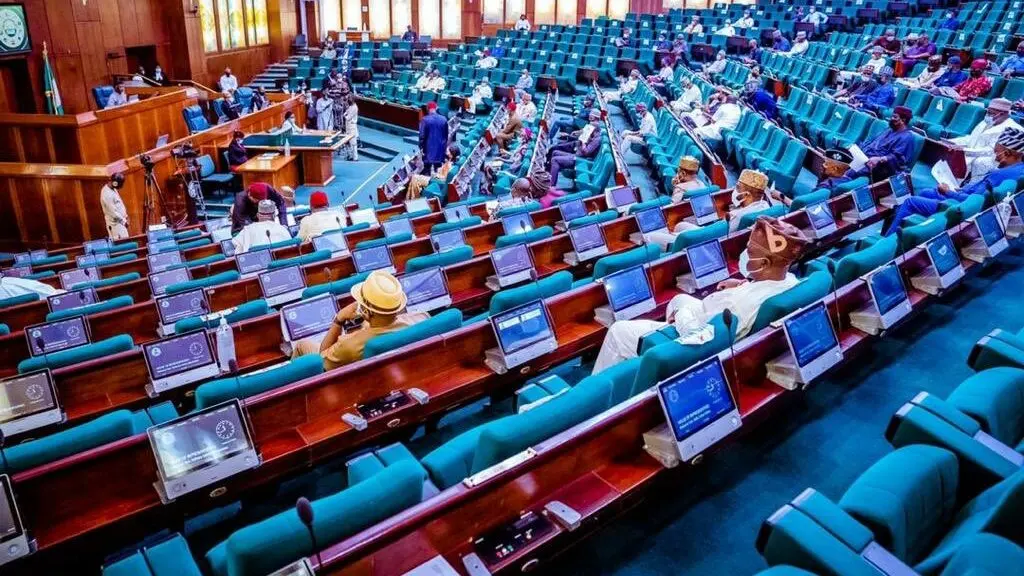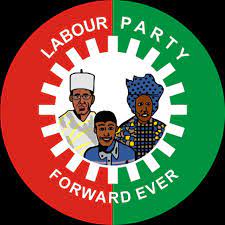NEWS
Improved Tax-to-GDP Ratio will Actualise Budget Ambitions – LCCI

The Lagos Chamber of Commerce and Industry (LCCI) has underscored the urgency of improving Nigeria’s tax-to-Gross Domestic Product (GDP) ratio, to meet the ambitious N34.82 trillion revenue projection.
The LCCI Director-General, Dr Chinyere Almona, said this on Thursday in Lagos, in reaction to the contents of the 2025 budget proposal.
President Bola Tinubu had, on Wednesday, presented the country’s 2025 budget titled “The Restoration Budget: Securing Peace, Rebuilding Prosperity” to a joint session of the National Assembly.
Tinubu revealed that in 2025, the country was targeting N34.82 trillion revenue to fund the country’s projected expenditure of N47.
90 trillion, including N15.81 trillion for debt servicing.According to Almona, to achieve this, accelerating tax reforms, simplifying processes, and incorporating the informal sector were essential.
She said that the country must leverage technology to expand the tax net, minimise leakages, and foster
“Fiscal discipline must complement these efforts to effectively manage the N15.81 trillion debt servicing allocation.
“Nigeria must prioritise high-impact, self-sustaining projects and explore alternative funding mechanisms, such as public-private partnerships, to keep debts within sustainable limits.
“Structural reforms are indispensable to reducing inflation to 15 per cent and stabilising the exchange rate at N1,400 to the dollar, ”she said.
She said that addressing food and energy supply chain bottlenecks, fast-tracking local petroleum production projects, and fostering alignment between monetary and fiscal policies would restore confidence in the Naira and ease inflationary pressures.
“Achieving the ambitious oil production target of 2.06 million barrels daily requires decisive action to resolve pipeline vandalism, theft, and underinvestment.
“Across the three streams of operations in the oil and gas industry, a sound regulatory environment can boost activities and investments in the short term,”she said.
Addressing the priorities of the budget, Almona lauded the Tinubu’s attention to security, infrastructure, education, health, and agriculture, to achieve macroeconomic stability and inclusive growth.
She said that the allocation of N4.91 trillion for defence was commendable compared to previous allocations.
She, however, said that the funding must be complemented with enhanced intelligence, surveillance technology, and simultaneous investment in poverty reduction and youth empowerment.
Almona said that the N4.06 trillion earmarked for infrastructure and significant allocations for education and health called for swift and transparent project execution.
According to her, while the budget outlines bold goals, these aspirations hinge on robust policy implementation, sustained execution, and coherence across government strategies.
“Beyond the figures and assumptions, budget implementation is the key performance driver.
“The 2024 budget implementation cycle extension to June 2025 should be closely watched to avoid such in the future as it can signal weak budget execution.
“We call on the National Assembly to expedite action on the appropriation debates.
“We are concerned that much-needed scrutiny and consultations on the budget may not be possible if the January-December budget cycle is to be maintained,” she said.(NAN)
NEWS
Reps Move to Delist NECO, UI, 21 MDAs From 2025 Budget

The House of Representatives has recommended the delisting of National Examinations Council (NECO), University of Ibadan, Federal Ministry of Labour and Employment from the 2025 budget.
Others affected are 21 ministries, departments and agencies (MDAs) for their alleged repeated failure to account for previous budgetary allocations and internally-generated revenue.
The resolution was reached during an extra-ordinary sitting of the House of Representatives Public Accounts Committee in Abuja.
The decision, according to the chairman of the committee, Rep. Bamidele Salam, followed the persistent non-compliance of the MDAs with the committee’s summons, aimed at scrutinising their financial operations.
Among the agencies recommended for delisting are hospitals, universities and development agencies.
Salam said that the delisting recommendation was sequel to multiple invitations sent to the agencies over the past several months.
He added that the agencies failed to attend the scheduled hearings nor provide the necessary documentation requested by the committee.
Other affected MDAs included: the Federal Medical Centre, Bida; Federal Ministry of Labour and Employment; Ahmadu Bello University Teaching Hospital, Zaria and the Nigeria Police Force.
Also involved were the Department of Information and Communication Technology, Federal College of Education (Technical), Asaba; Federal College of Education, Yola and Federal Polytechnic, Ekowe, among others.
Salam said: “The Financial Regulation empowers the National Assembly to exclude any ministry, department or agency (MDA) that fails to account for their previous appropriations.
“As such, the listed MDAs should be excluded from the 2025 budget until they appear before this constitutional committee.”
Report says that the committee unanimously recommended that the 24 MDAs should be excluded from the 2025 budget until they appear and provide the necessary clarifications.(NAN)
NEWS
Yuletide: Benue Residents Groan over Cash Scarcity

Benue residents say they were facing severe financial difficulties as banks in the state grapple with a persistent cash crunch, forcing many customers to rely on Point of Sale (POS) terminals for everyday transactions.
They bared their minds in an interview on Wednesday in Makurdi.
According to them, the scarcity adversely affected people, particularly now that preparations were ongoing for end-of-year festivities.
A customer, Mr Wilfred Anum, decried the scarcity of physical currency, which had led to widespread frustration and long queues at Automated Teller Machines (ATMs).
“This is sad. We are at the mercy of POS operators. Some are charging as high as N300 and some even N400 to withdraw N10,000.
“Customers have increasingly resorted to POS systems to make payments and withdrawals, but the cost and limitations of using these alternatives are becoming significant hurdles.
“While POS transactions offer a solution, they come with their own set of problems, such that their transaction fees have become burdensome for those making frequent payments,” Anum said.
A small-scale trader, Mr Dondo Wende, also expressed concern over the additional charges that had made their businesses less profitable.
“The fees are too high, and sometimes the machines don’t work properly, causing delays,” Wende said.
Meanwhile, a trader, Mrs Nguveren Imo, said that the ongoing cash crisis was having a negative effect on the local economy, explaining that small businesses, which form the backbone of Benue’s economy, were the worse hit, as they rely heavily on cash transactions.
“The inability to access cash is stalling economic activities, and it has long-term consequences for the economy.
“We cannot survive without cash; it is difficult to pay local suppliers who need cash because they operate in non-bankable areas.
“We also need to settle debts or even buy stock. We are stuck in this cycle, and it is affecting not just businesses but families as well,” she said. (NAN)
Foreign News
No talk of Ceasefire Deal Between Turkey, US-backed SDF in Northern Syria – Turkish Official

There is no talk of a ceasefire deal between Turkey and the U.S.-backed Syrian Democratic Forces (SDF) in northern Syria, contrary to a U.S. announcement on the issue, a Turkish defence ministry official said on Thursday.
The official was responding to comments from State Department spokesperson Matthew Miller, who said a ceasefire between Turkey and the SDF around the northern Syrian city of Manbij has been extended until the end of this week.
“As Turkey, it is out of the question for us to have talks with any terrorist organisation.
“The (U.S.) statement must be a slip of the tongue,” the defence ministry official, who was speaking on condition of anonymity, told reporters.
Washington brokered an initial ceasefire between Turkey-backed Syrian rebels and the SDF forces last week after fighting that broke out earlier this month as rebel groups advanced on Damascus and overthrew Bashar al-Assad.
The SDF is an ally in the U.S. coalition against Islamic State militants.
It is spearheaded by the YPG, a group that Ankara sees as an extension of the Kurdistan Workers Party (PKK) militants who have fought the Turkish state for 40 years.
Turkey regards the PKK, YPG and SDF as terrorist groups. The U.S. and Turkey’s Western allies list the PKK as terrorist, but not the YPG and the SDF.
When asked if Ankara was considering another ground operation into northern Syria, the official said that Turkey still sees a threat to its borders from north Syria.
“Our preparations and precautions as part of the fight against terrorism will continue until the PKK/YPG lays down its arms and its foreign fighters leave Syria,” the official said.
Since 2016, Turkey has mounted four military operations in northern Syria, citing national security threats.
Turkey believes that forces of the Syrian National Army paramilitary group which it backs will “liberate” YPG-controlled areas in northern Syria, the official said, signalling that Turkey does not plan an imminent operation into the region by its military.
The SDF have close ties with Western countries including the U.S. and France. Recently, France said the political transition in Syria needed to ensure that the SDF was represented. (Reuters/NAN)


















